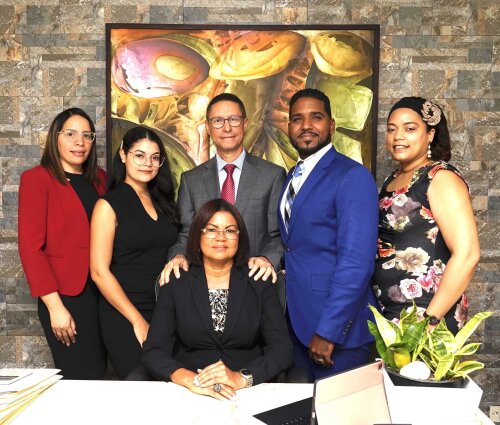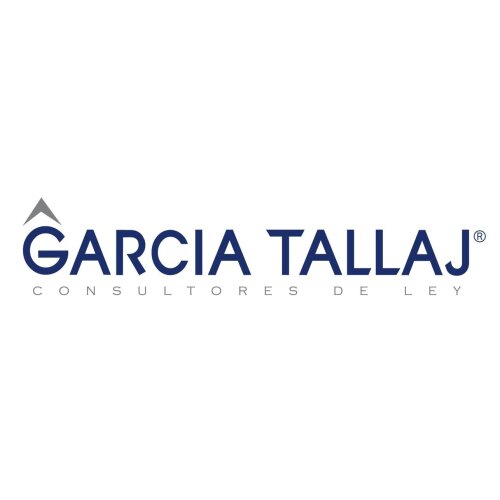Best Child Abuse Lawyers in Sosua, Cabarete
Share your needs with us, get contacted by law firms.
Free. Takes 2 min.
Free Guide to Hiring a Family Lawyer
List of the best lawyers in Sosua, Cabarete, Dominican Republic
About Child Abuse Law in Sosua, Cabarete, Dominican Republic
Child abuse is a serious crime with severe consequences in the Dominican Republic, including the towns of Sosua and Cabarete. Child abuse refers to any act or failure to act that directly or indirectly causes harm to a minor under eighteen years old. This includes physical abuse, emotional abuse, sexual abuse, and neglect. In tourist destinations like Sosua and Cabarete, vigilant legal oversight aims to protect both local children and those visiting from exploitation and abuse.
Why You May Need a Lawyer
Legal representation can be crucial if you are involved in a child abuse case, whether as a victim, guardian, accused, or concerned third party. Common situations that require legal help include:
- Reporting suspected abuse and ensuring an appropriate investigation
- Facing accusations or criminal charges related to child abuse
- Child custody or visitation disputes where abuse is alleged
- Seeking protective orders or injunctions for a child at risk
- Pursuing civil damages or compensation due to abuse
- Navigating the Dominican Republic’s legal procedures as a foreign national
A lawyer helps safeguard your rights, ensures that proper procedures are followed, and can represent you in court or before authorities.
Local Laws Overview
The Dominican Republic enforces strict child protection laws. Key legal frameworks include the national constitution, Law 136-03 (Code for the Protection of Children and Adolescents), and provisions within the Penal Code. Important points include:
- Mandatory reporting of suspected child abuse by any person aware of it
- Severe criminal penalties for offenders, with harsher sentences for crimes involving sexual exploitation, trafficking, or repeat offenses
- Legal requirements for investigating allegations of abuse, with child welfare authorities and the public prosecutor’s office playing a central role
- Protection measures, such as removal of a child from harmful environments and issuance of protection orders
- Additional scrutiny regarding child abuse in areas frequented by tourists due to risks like sex tourism
- Special attention to foreigners or tourists involved in allegations, which may include international cooperation
Child abuse cases are handled confidentially to protect the victim’s identity and integrity.
Frequently Asked Questions
What is considered child abuse under Dominican law?
Child abuse covers physical, sexual, psychological harm, as well as neglect or exploitation of anyone under eighteen.
Who is required to report suspected child abuse?
Anyone with knowledge or suspicion of child abuse is legally obligated to report it to authorities.
What authorities handle child abuse cases in Sosua and Cabarete?
The National Council for Children and Adolescents (CONANI), National Police, and the Public Prosecutor’s Office are key bodies involved in handling these cases.
Can a foreigner be accused or report child abuse?
Yes, both locals and foreigners can report abuse or be accused of child abuse. Foreign nationals are subject to Dominican laws and may also face immigration consequences.
What legal steps should I take if I suspect a child is being abused?
Contact the police or CONANI immediately. You may make an anonymous report. It is also advised to seek legal help for guidance and support.
What penalties exist for child abuse convictions?
Penalties include prison sentences ranging from 2 to 20 years, fines, and additional sanctions for severe cases such as sexual abuse or trafficking.
Is child abuse treated as a public crime?
Yes, child abuse is considered a crime of public order, and prosecution does not require a formal complaint from the victim’s family.
Can a child testify in court?
Yes, but special procedures are followed to protect the child’s emotional and psychological welfare, often involving expert counselors.
What protections exist for victims during the legal process?
Victims benefit from confidentiality, access to psychological support, and protection orders to ensure their safety.
How are false accusations handled?
Anyone making deliberately false accusations can face legal consequences, including criminal penalties.
Additional Resources
For more information or support, consider contacting the following:
- CONANI (National Council for Children and Adolescents) – Government body responsible for child protection
- Local Police or Tourist Police (POLITUR) – Emergency or urgent reporting of abuse
- Public Prosecutor’s Office – Handles criminal investigations and prosecutes offenders
- Local Hospitals and Clinics – Medical care and forensic evaluations
- International organizations or embassies – Support for foreigners involved in cases
Next Steps
If you need legal advice or are involved in a child abuse situation in Sosua or Cabarete, you should:
- Immediately report any suspected abuse to the police or CONANI
- Seek medical care for the child if necessary
- Contact a qualified attorney with experience in child protection law in the Dominican Republic
- Gather and preserve any evidence such as photographs, communications, or witness details
- Consider contacting your embassy or consulate if you are a foreign national
Remember, early legal intervention can make a significant difference in protecting the child and your rights. Consultation with local experts ensures you follow correct procedures and receive appropriate support throughout the process.
Lawzana helps you find the best lawyers and law firms in Sosua, Cabarete through a curated and pre-screened list of qualified legal professionals. Our platform offers rankings and detailed profiles of attorneys and law firms, allowing you to compare based on practice areas, including Child Abuse, experience, and client feedback.
Each profile includes a description of the firm's areas of practice, client reviews, team members and partners, year of establishment, spoken languages, office locations, contact information, social media presence, and any published articles or resources. Most firms on our platform speak English and are experienced in both local and international legal matters.
Get a quote from top-rated law firms in Sosua, Cabarete, Dominican Republic — quickly, securely, and without unnecessary hassle.
Disclaimer:
The information provided on this page is for general informational purposes only and does not constitute legal advice. While we strive to ensure the accuracy and relevance of the content, legal information may change over time, and interpretations of the law can vary. You should always consult with a qualified legal professional for advice specific to your situation.
We disclaim all liability for actions taken or not taken based on the content of this page. If you believe any information is incorrect or outdated, please contact us, and we will review and update it where appropriate.










